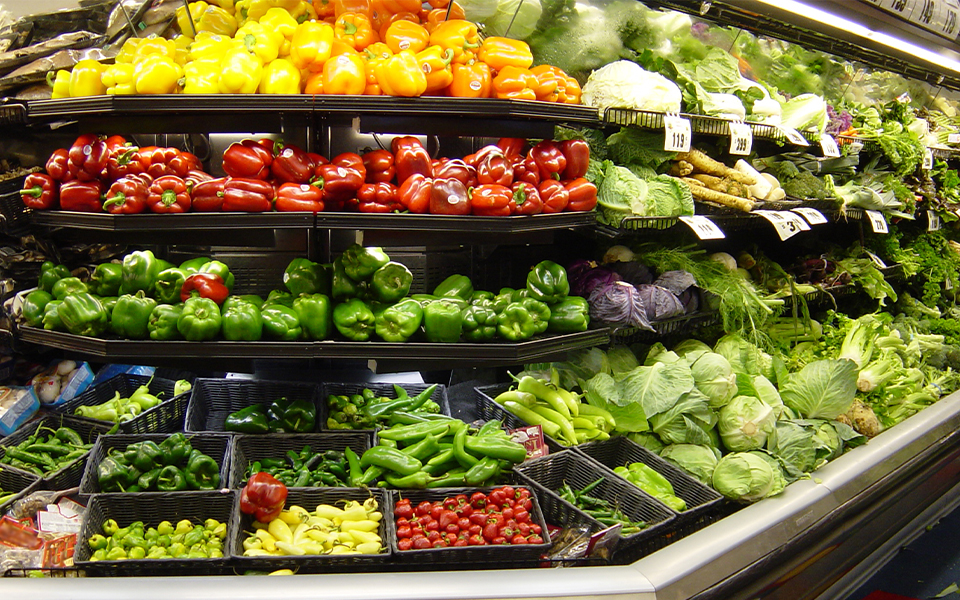*On June 1, 2023 Emerson’s Climate Technologies business became a new standalone company – Copeland. Though our name has changed, we are building on more than a century of HVACR innovation and industry leadership, and Copeland continues to offer the same products, industry stewardship, and learning opportunities you’ve grown to trust. Information found on this webpage posted before June 1, 2023 may contain our old name or branding, but you can be at ease knowing it was created with the knowledge and expertise of Copeland.
As an indispensable link in the perishable food cold chain, the trucking industry helps to transport fresh produce, floral, seafood, protein meats and frozen goods from producers to cold storage facilities, restaurants and grocery stores. But for more than two years, it has been subjected to dynamic market changes and tumultuous conditions within its ranks. From supporting historic increases in food retail volumes at a time when many drivers chose to change professions to adapting to a post-COVID economy, this perfect storm of unanticipated challenges has strained food supplies and threatened perishable integrity.

Trucking industry instability increases the potential for temperature excursions, which could accelerate the degradation of perishable food quality and safety. In the face of these emerging complexities, cold chain stakeholders have access to modern data analytics, tools and services to help them maintain strict quality standards.
Increasing headwinds
Among the most significant of trucking industry challenges is the shortage of owner-operators entering the market. According to trucking industry sources, peak unemployment reached 12 percent in June 2020 — leaving a void from which the industry has yet to fully recover.
The pandemic-driven economic downturn — combined with inflation and the rising price of fuel — has stirred up additional headwinds for new and existing drivers alike. Used tractor trailer costs have risen significantly over the past two years, forcing new drivers to enter the market in much older vehicles than preferred. Today, the average age of owner-operator trucks on the road is roughly 14 years old (model year 2008).
For owner-operators of small fleets — of which 90 percent have six or fewer trucks — increased fuel prices, maintenance and ownership costs are cutting into profits and driving them out of the market. They simply can’t compete with large brokers who may have more leverage to raise rates in hopes of offsetting the rising costs of doing business.
Drivers who have managed to stay profitable have been forced to adapt from a freight on board (FOB) business model to a more flexible less-than-truckload (LTL) approach that caters to smaller, individual deliveries. But an LTL business model can add to the mileage and costs of deliveries while compounding the complexities of managing the proper temperatures of the various types of perishables onboard.
Cold chain impacts and Copeland solutions
The combination of poor insulation and LTL shipments is having potentially detrimental effects on food quality and safety. The biggest operational risk for drivers is to have perishable loads rejected upon delivery. For foodservice and food retailer stakeholders, ensuring proper perishable temperatures throughout the cold chain is the underpinning of their quality assurance (QA) processes. It enables them to offer fresh and safe menu items and keep products on shelves for as long as possible.
Perishables that have been exposed to temperatures that deviate from their optimal storage setpoints can experience a variety of issues, including:
- Ripening past peak quality
- Rotting and/or spoiling
- Formation of bacteria or foodborne pathogens
Modern tracking tools and data analytics technologies can help cold chain stakeholders to avoid these pitfalls. By using Copeland’s GO real-time 4G/5G trackers and cloud-based Oversight software, stakeholders can:
- Achieve real-time visibility to shipper temperatures and locations
- Uncover historic insights into cold chain performance
- Transition from reactive to proactive cold chain management
Stakeholders can be notified immediately when there are temperature excursions — which may occur when drivers attempt to save fuel by taking the truck off continuous set mode — and address issues before any perishable degradation can occur. Oversight software aggregates data points from previous shipments to uncover deeper insights and long-term trends, such as:
- Carriers and shipping lanes that are the sources of frequent temperature excursions
- Products that are most susceptible to temperature issues
- Producers who have a history of poor quality
- Seasonal and geographic factors that impact reefer temperatures
- Distribution centers (DCs) that may practice careless cold chain management
Most importantly, data provides an objective record of cold chain temperatures in-transit, serving as an arbiter of supply chain disputes. Access to trip logs and temperature records takes emotion out of the equation by providing indisputable proof of precisely when and where temperature excursions occurred.
With Oversight, real-time and historic insights are available at your fingertips. Its user-friendly dashboard and easy-to-access visual reports and scorecards help stakeholders to:
- Quickly view key data points
- Identify carriers with the best track records
- Uncover quality trends and insights
- Pinpoint the sources of cold chain issues
- Perform root cause analysis
Copeland’s professional cold chain experts can provide you with consultative and managed services to help you fill in the gaps of your own QA teams or perform complete operational assessments. As an objective third party, we can leverage our data analytics and expertise to offer fresh perspectives on your most persistent cold chain challenges.

Facility Health Score Insights Program Transforms Enterprise Maintenance
Leveraging refrigeration performance data drives food retail cost reductions. Maintaining proper...

8 proven strategies for rigorous cold chain management
Preparing for the approval and safe use of A2Ls in commercial refrigeration applications...
Protection for high-value shipments just got even better
We’re excited to announce the release of Copeland’s newest real-time tracker, the GO Real-Time...
